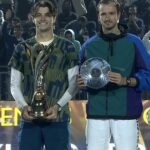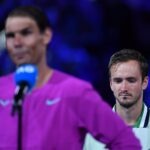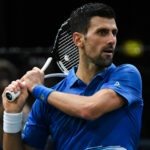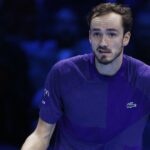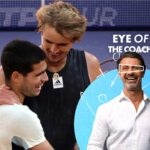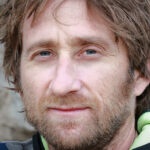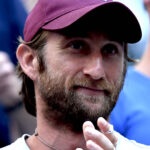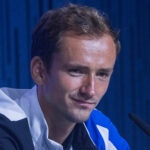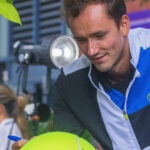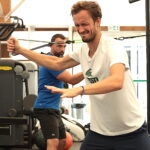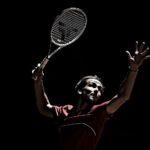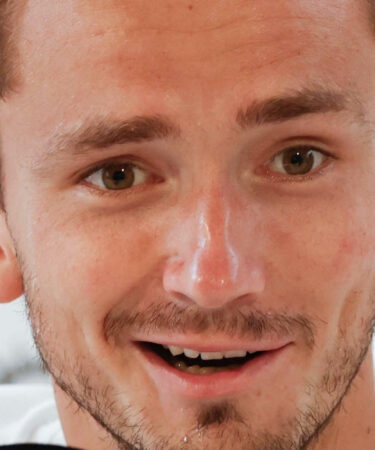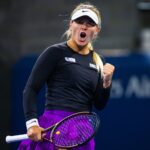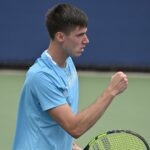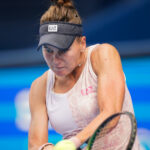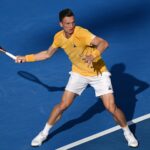Medvedev: “The day I decided to train just with Gilles…”
Daniil Medvedev and Gilles Cervara tell us about the mainspring of their work together since 2017 – or how two men found each other thanks to their intuition, their courage and their desire to succeed
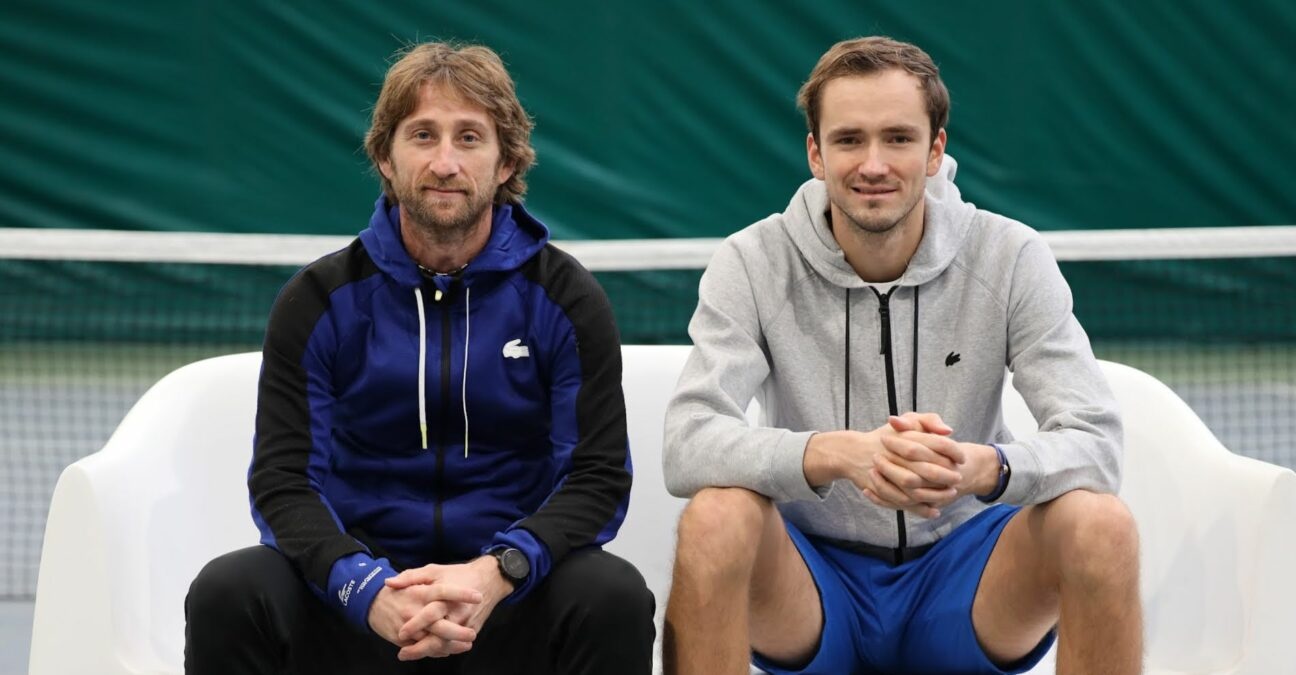 Gilles Cervara and Daniil Medvedev, november 2022 | © Tennis Majors
Gilles Cervara and Daniil Medvedev, november 2022 | © Tennis Majors
It’s a morning in November 2022, as sometimes happens on the French Riviera, those rare days when winter is not an abstract concept. The grey sky seems to be licking the ground, it is 4 degrees Celsius, and the air is so treacherous that a man with a cold, at the back of the well-heated cafeteria of the Mouratoglou Academy, has kept his down jacket on, his hands in his pockets and his hood up, as if he were about to go on a skiing trip in the Alps.
This man is Daniil Medvedev. He’s pretty good at handling sporting equipment: he was still world No 1 four months ago, and deprived Novak Djokovic of a calendar Grand Slam in 2021. He chats quietly with his coach Gilles Cervara and his physical trainer Eric Hernandez.
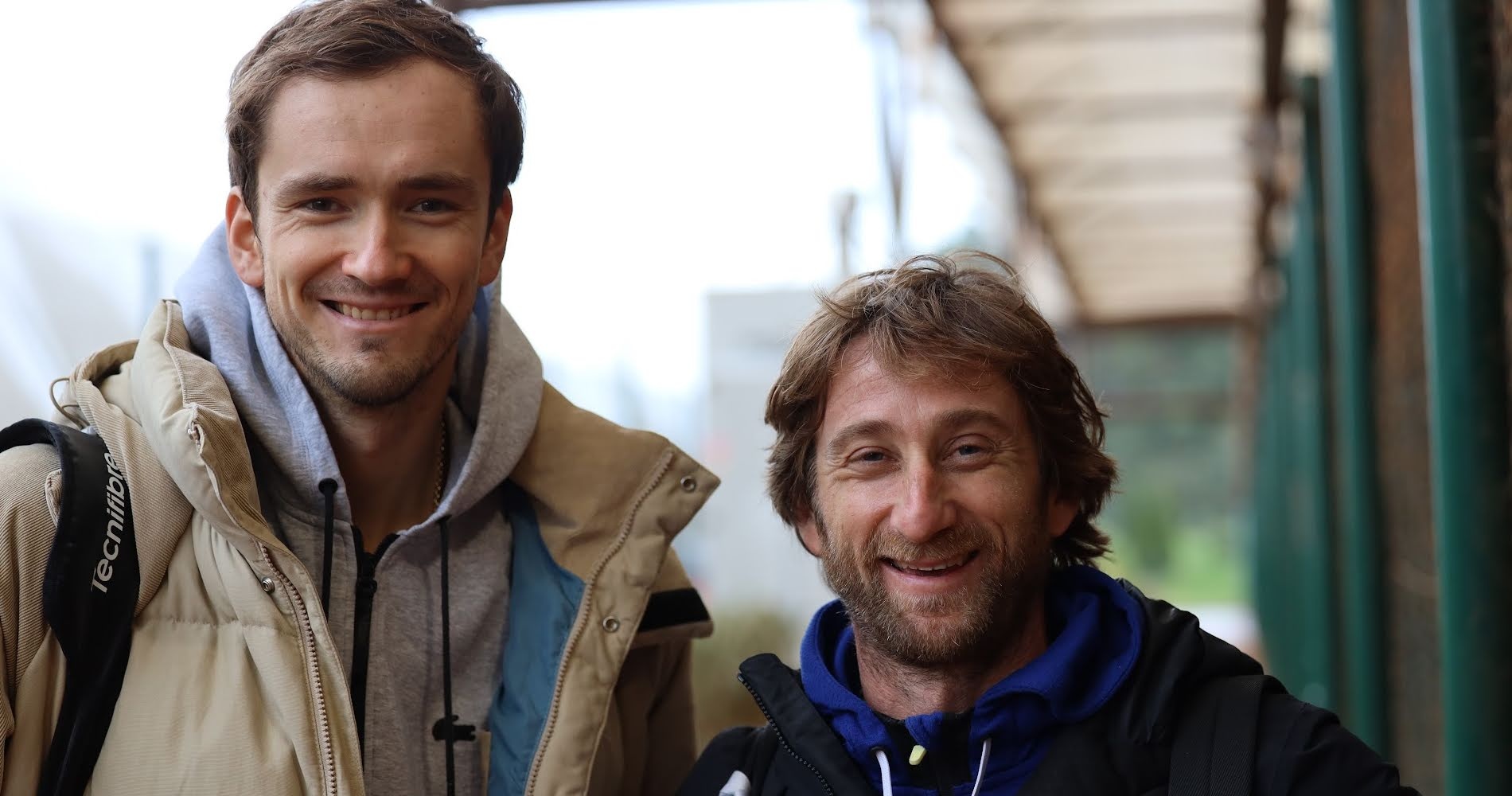
But he left the ATP Finals in Turin with plenty of anxieties just ten days days earlier. He is finally ready to look back at the end of the season and lay the foundation for the next one.
Cervara: “Daniil, I need information, I need your feedback on the Masters.”
Medvedev: “I screwed up, it’s as simple as that. I served twice for the match…”
Cervara: “Yes, but do you remember how you screwed up? This is what I found out – tell me if you agree…”
Cervara then practises one of his three favourite sports, along with tennis and boxing – the hunt for information. This is a crucial step before moving on to 2023 – the sixth time that Medvedev and Cervara have prepared a season together with this type of introspection.
The first time, Medvedev was 65th in the world and was 21 years old. He doubted that he would ever get above 30th in the world rankings, but he wanted to take his career in hand by asking an unknown 36-year-old Frenchman, who had been spotted at a few Futures events in the mid-2000s, to become his full-time coach. To see. To give it a try. To test- his limits without regret.
It was a different, less chilly start to the day in autumn 2017, in Cannes. Both of them remember this session as if it had taken place the day before. At the time, Cervara was one of three coaches Medvedev had worked with at the Elite Tennis Centre, following the Frenchman Julien Jeanpierre (until 2016) and the Monegasque Jean-
René “JR” Lisnard, who co-founded the training centre with Cervara four years earlier.
Before, I wasn’t too responsible for my actions. There was always someone to decide for me: my coaches, my parents, my teachers.
Daniil Medvedev
On this day in 2017, Medvedev decided to take his career in his own hands by asking Cervara if he could become his full-time coach.
“It wasn’t easy to ask him, I didn’t know what the reaction would be,” Medvedev told Tennis Majors in French. “I remember that time as a time when I was growing as a man, when I was finally making decisions. Before, I wasn’t too responsible for my actions. There was always someone to decide for me: my coaches, my parents, my teachers. Unusually, there were only two of us at that session and I asked him if he wanted to be with me as much as possible the following year, to work together, to see how it would work.”
It did work. Medvedev finished the 2018 season ranked 16th in the world. But before they launched their new collaboration, two conditions had to be met: first that Cervara agreed, and second, that his partner at ETC Cannes accepted it.
On Cervara’s side, the surprise was as strong as his decision was quick. “That day, I remember Daniil telling me about his private life, his meeting with the woman who would become his wife and he ended up saying, ‘Gilles, I want you to know that I don’t want Jean-René to be my coach with you, I would like you to be my only coach if you accept it.’ Instantly, I think it’s great. He asks me if it’s possible; in my head I say to myself that even if there was an obstacle with it, I would accept. It was an opportunity that I was willing to accept
no matter what.
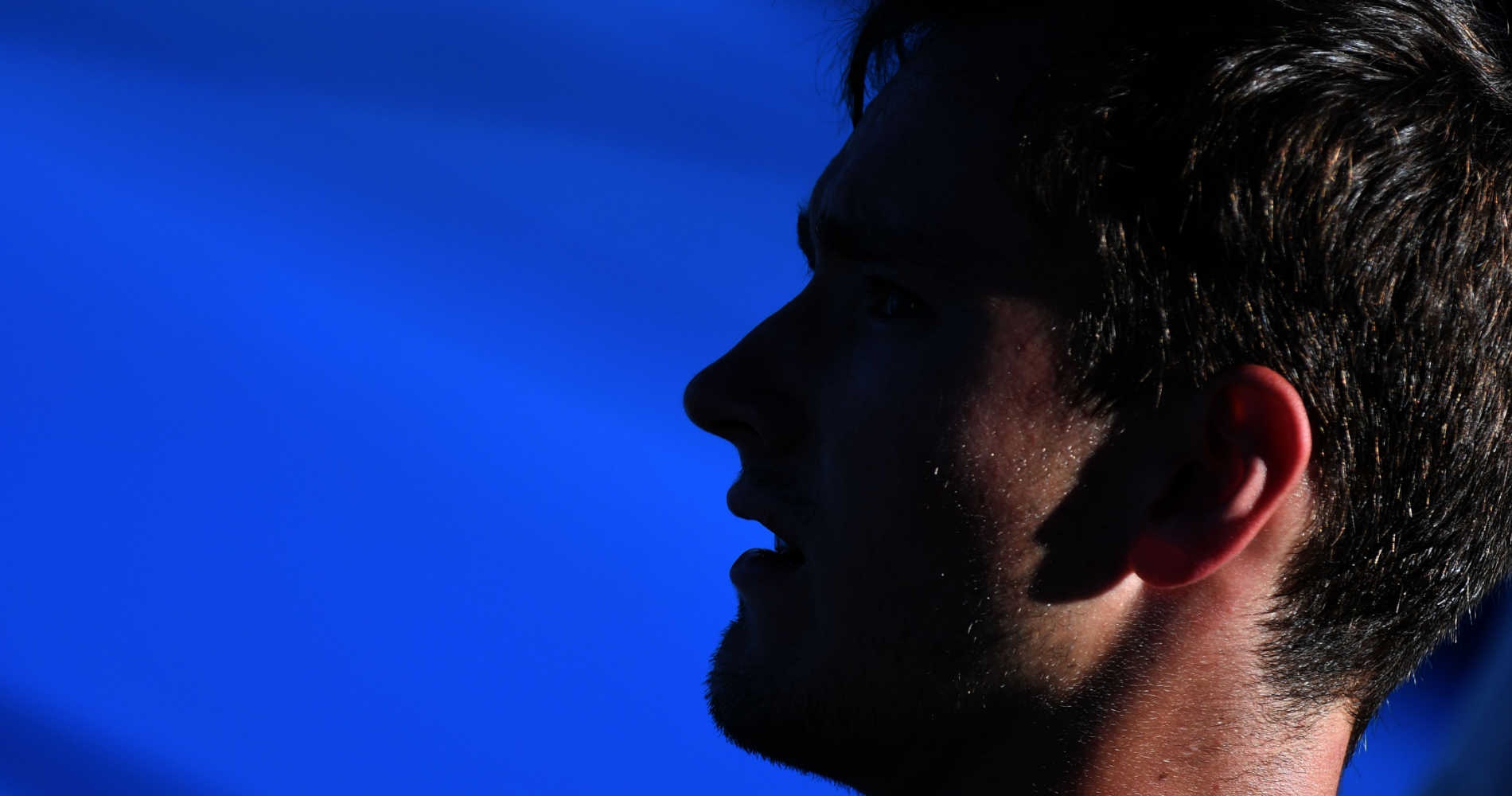
“Even so,” Cervara continues, “now that I know this, I ask him to talk to Jean-René about it very quickly. Daniil does it during the day with the three of us together at lunch. Jean-René accepts without showing
much. That’s how it’s done.”
“JR reacted well,” Medvedev recalls. “He also felt that it was a period when things were going a little less well between him and me, and he felt the same way.”
No one could have guessed that the partnership between Medvedev and Cervara would lead to great heights; and a first Grand Slam final against Rafael Nadal less than two years later (US Open 2019).
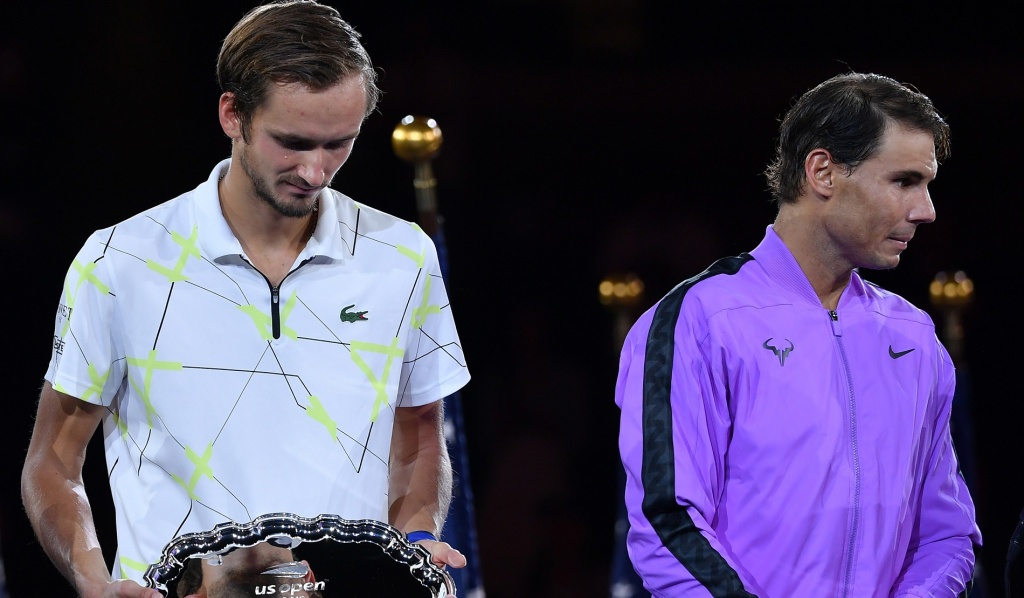
On one side of the equation was a Russian player in whom no one really believed despite regular flashes of brilliance; tall, but with an inconsistent serve, an erratic temperament, an almost lunar return position, and a technique not documented in any guidebook. On the other side was a coach who had never worked on the tour, who had pursued his dream career as a professional player, and was now working hard to reach the top of a second line of work, without any confidence it might actually happen.
Cervara smiles as he tells the story of his first session with Medvedev in April 2014: “We have an appointment at 2 pm but I don’t see anyone who looks like an 18-year-old world junior No 13. And then I end up thinking that maybe it’s the gangly teenager I’ve met several times in the the club with his father and who looks like a young person who would come to do the the Easter vacations training course… That’s him! Mind you, he must have said that day when he saw me that I didn’t look like a coach.
“Our system in Cannes allowed the players to choose their own coach,” adds Cervara. “Daniil chose Julien Jeanpierre (171st in the world in 2006) first, then Jean-René, then eventually me. He wanted someone who had experience at the top level. I was disappointed but I understood him and I said to myself: ‘It doesn’t matter, I’ll keep working.’ On the field, I liked what I was doing but it wasn’t always easy, because if you’re not solid, if you don’t have an impact in what you give off and present to the young players, even beyond the results, some of them can quickly question you.”
In Medvedev’s case, the opposite is true. The Russian player with his unpredictable temperament perceives that Cervara’s sensitivity gets results out of him, and that the weeks spent together are some of the most enjoyable and performance-enhancing of his young career. Interviewed separately for this article, both men share the same memory of the day the ice broke and they were able to “connect” irreversibly, to use a phrase central to Cervara’s vocabulary.
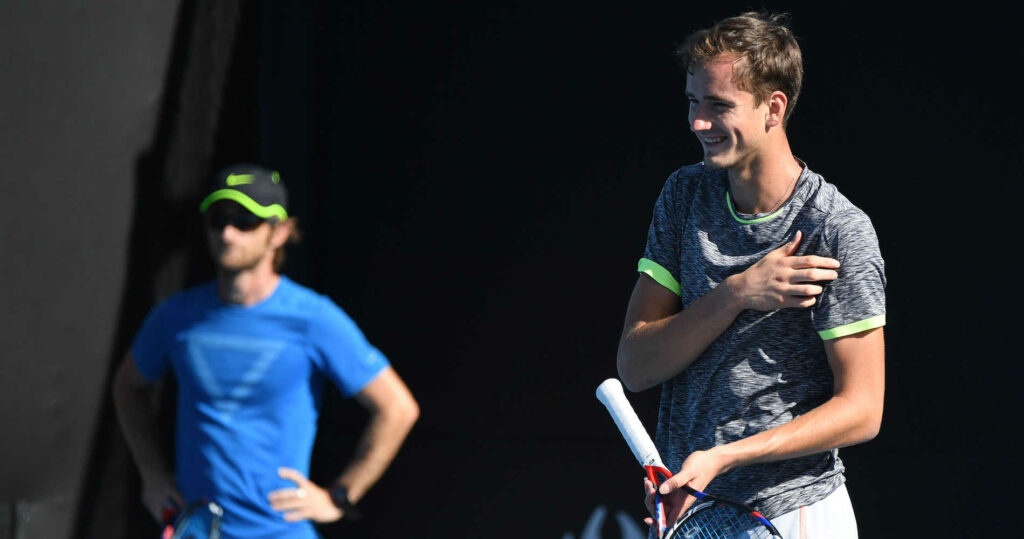
“That summer of 2017, there was no plane from Washington to Montreal after I was knocked out of the Citi Open, so we drove 12 hours and we talked about a lot of things, about life, about tennis and I liked the way he was and the way he talked,” Medvedev said. “At that time, I was starting to consider trying a year with one private coach. That’s when I got the idea that it could be him.”
“We arrive at 2am in Canada,” recalls the coach. “From 10pm onwards, I stop every hour to do push-ups and run to get active, because I’m tired from the road and the transatlantic trip that brought me here the day before…I am completely jet-lagged. There we learn to know each other and how we operate. I do what I know how to do, I guide, I listen, I ask questions, I say what I think without pretending that I have all the answers. I coach with conviction and reflection. I have a 360 degree view of the performance, I have fun trying to bring things to him and to make it more professional, because I know that everything around the field is almost foreign to him at the time and that his identity and his game do not yet have the the volume and density that we had to build every day – not to mention his psychology, strong and fragile at the same time.”
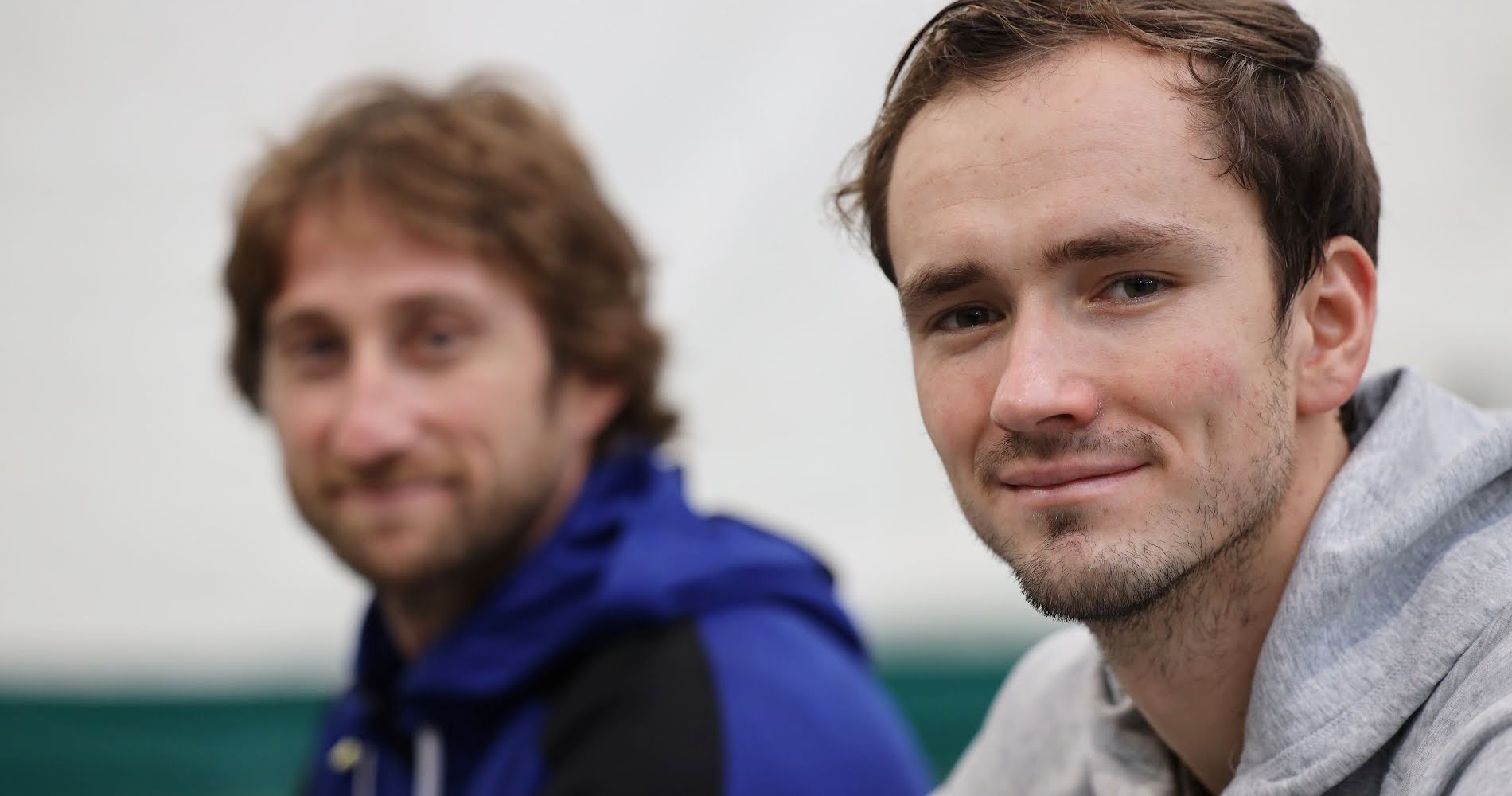
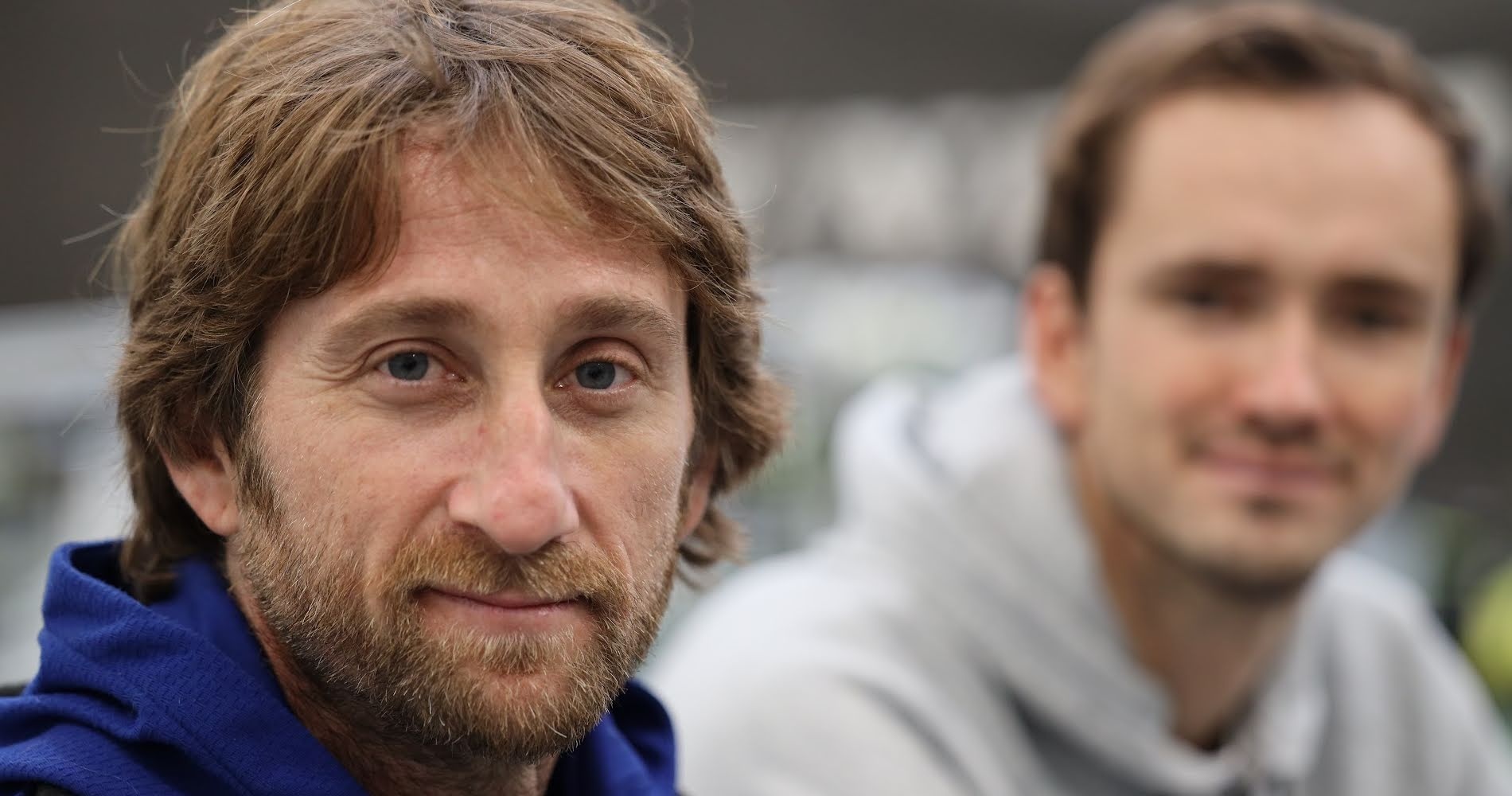
At that moment, it wasn’t producing the results, but ultimately it reinforced the obviousness of working together.
In Canada, Medvedev only took four games in the first round against Adrian Mannarino, losing 6-3, 6-1. And Cervara’s advice advice was initially disconcerting to him.
“I talked to him about nutrition and tell him that, so many hours before the match, it would be good for him to eat this food. He was used to eating pasta very shortly before going on court, which is not good because it makes him digest while he is playing. He accepts because Daniil is a person who tries to listen. He eats when I ask him to, but the match is interrupted because of the rain and he tells me with a panicked look on his face that he feels he hasn’t eaten enough.
It was a complicated time in my personal life as well as in tennis. It was my first year in the top 100 and I wanted to do better but you see that many players are playing very well and you are not sure you can do it.
Daniil Medvedev
“Me,” continues Cervara, “I know that he has the necessary carbohydrate reserves. It’s just that his brain wasn’t satisfied, he hadn’t had enough, so I had to tell him something like: ‘You insist ? Go ahead, eat your pasta’. Right after that, I realised that I had to be careful how I phrased it. But the important thing about this story is that both of us remembered that we had taken a step towards each other, and that’s how we build our relationship. I have plenty of anecdotes like that.
Even though he was coming off a quarter-final in Washington, 2017 was the summer horribilis for Medvedev. First round in Cincinnati against Fognini. Cervara gave up his seat to Lisnard after Montreal. First round in Winston Salem against Edmund. First round at the US Open against Shapovalov.
“It’s really at the time of the US Open that I make my decision,” Medvedev said. “It was a complicated time in my personal life as well as in tennis. It was my first year in the top 100 and I wanted to do better but you see that many players are playing very well and you are not sure you can do it. I had thought about it earlier in the season, but it was really against Shapovalov that the decision to choose Gilles really takes shape. As always in my life, I make decisions spontaneously, but they were working for me before, and now I’ve decided that I want to try to work with Gilles only.”
“I then ask Daniil what kind of leeway I had,” Cervara continues. “He gave me carte blanche. The image that comes to me immediately is that I must create a cathedral: that is to say, take into account all the parameters
that exist in the construction of a player.”
Tennis fans began to get to know this pairing, capable of spectacular clashes in the middle of a match, during the last third of the 2019 season: final in Washington, final in Montreal, victory in Cincinnati, final at the US Open, victory in St. Petersburg, win in Shanghai, fourth place in the world. Medvedev followed up this success in 2020 with a semi-final at the US Open, a victory at the at the Rolex Paris Masters and the ATP Finals.
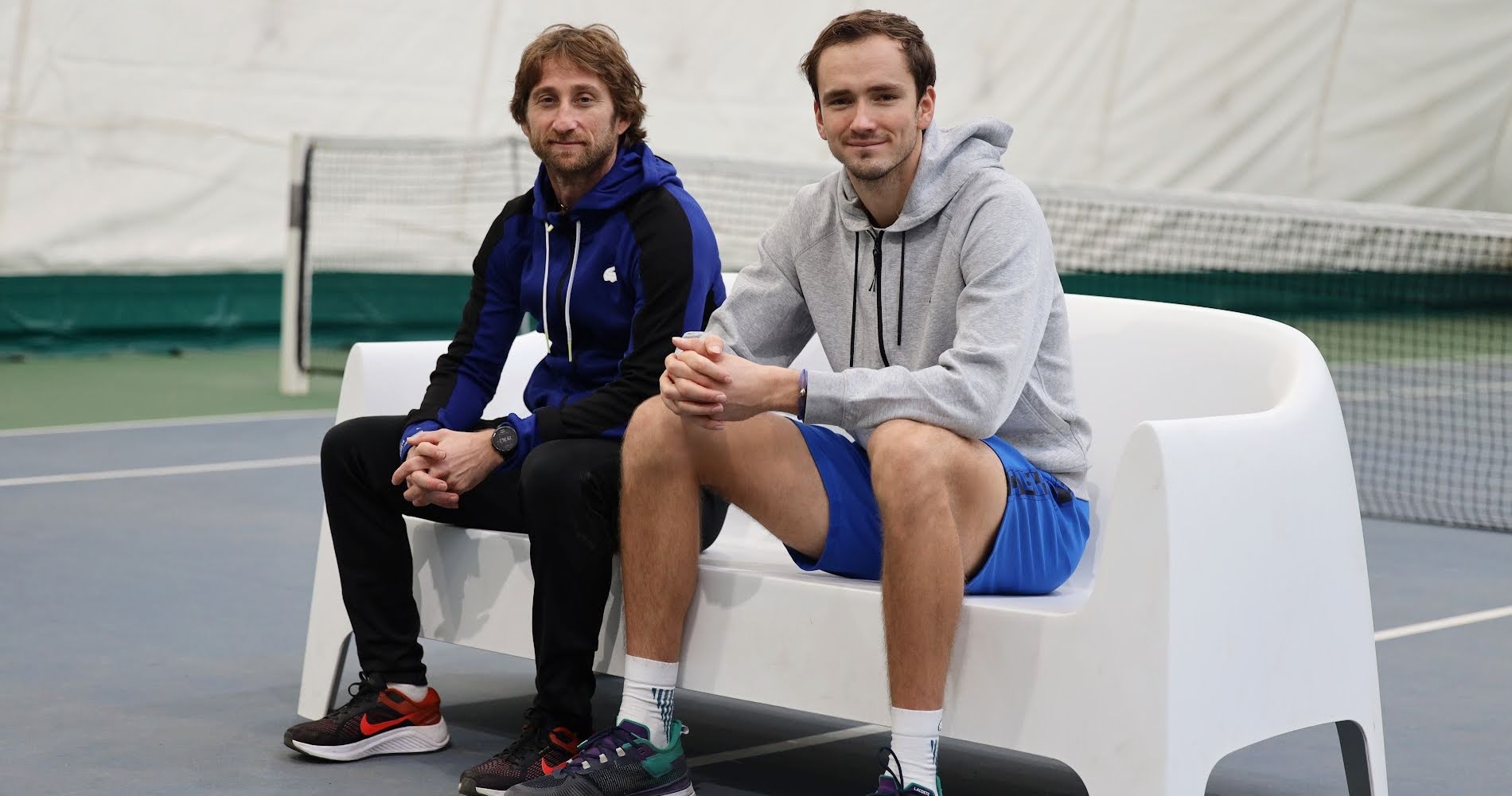
In the meantime, the world changed. First with the pandemic. Cervara got a house rent with private courts in the Cannes area, went to get his dog in Paris that night, and he and his partner spent time with the future Medvedev couple in order to keep up the intensity of the work.
After the US Open, they did not return to Cannes, but instead set up 20 minutes away, on the courts of the Mouratoglou Academy. Cervara left the association that he had co-created in late 2013 with Jean-René Lisnard: a delicate affair, not much reported in the press in the absence of legal dispute between the two men, but it resurfaced when Lisnard gave the media a somewhat different interpretation of the story told by Medvedev and Cervara (as well as other witnesses we interviewed).
As recently as October, he told the Russian newspaper Sport Express that Cervara had never worked with Medvedev before 2018, that Cervara himself had himself had asked to take care of the Russian, and that Medvedev now thrives solely on the knowledge he gained from his training at the Elite Tennis Centre.
When asked by phone, Lisnard was kind enough to give us a few minutes even if “this subject (can) make him very nervous”. He maintains his version of the events despite the testimony of Medvedev that we reported to him. “I kind of forced Daniil to be only with Gilles,” he said. “What (Cervara) is doing today with Daniil is more of a coaching tour, a follow-up, I don’t call it coaching.”
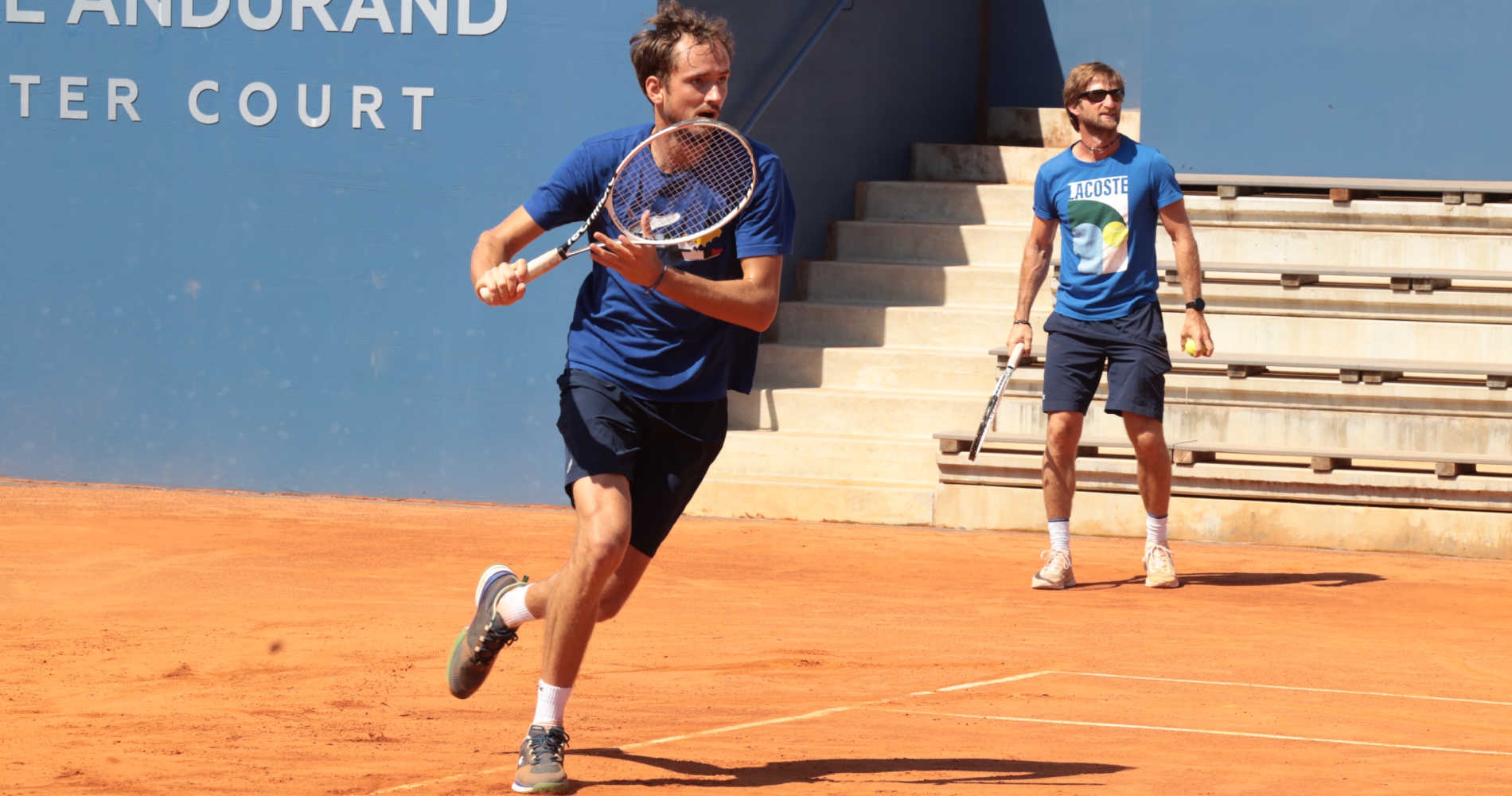
Caught in the crossfire of two very strong (and in retrospect incompatible) temperaments in their own way, Medvedev observes this testimony with placidity.
“I was told about this interview,” Medvedev smiles. “The facts go back four years, maybe some of JR’s words have been changed, maybe it’s normal to have different versions with different people. But from my point of view, it happened as I’m telling you.
When Gilles makes his decision to leave, I specify that it is with him that I want to train and so I leave with him.
Gilles Cervara
“For me, everything always went well at the centre in Cannes,” he continues. “I played there for six years, I have many friends there. I could see that there was tensions between Gilles and JR, for different reasons. The line that I chose was that I would intervene if necessary, but that moment never came. My approach to relationships is that if you don’t do anything to me, I don’t judge you badly in return. JR never did anything to me.
“But of course, when Gilles makes his decision to leave, I specify that it is with him that I want to train and so I leave with him. I am following the path of my project, it is as simple as that. If tomorrow Gilles tells me that he wants to move to another region, it will call for another level of reflection to be able to work together (they now live 45 minutes away from each other, editor’s note). But then, it was easy to say: ‘this is it’.”
Easy for Medvedev, perhaps, but harder for his coach. The reasons that pushed Cervara to leave Cannes are numerous, mixed and inflammable. The Frenchman weighs his words to pull together the thread of history.
Cervara : “I can’t be sure that Daniil will follow me, for two reasons…”
“After 2017, working with Daniil takes me a lot of time, energy, reflection, commitment. Of course, this mission takes up 98% of my time and I want to see it through. I keep in touch with other strong projects (Sofia Costoulas, Alen Avidzba…) but the time available to me to work with more than one player decreases more and more… I put together the team around Daniil, the results are there but the results are only the visible face of a connection between us and an operation hyper well calibrated to the personality and the game of Daniil. What is important is that I’m having fun and I feel that I’m good at this job. 2018 is a year with three titles. I’m just doing my job without really realising it, but in reality we’re already in a special story, Daniil and I. A distance is created with Jean-René.
“In 2019, shortly before Daniil’s visible explosive rise, things deteriorate and tensions accumulate at the moment when I propose my way to reconfigure things in a way that I think is right and who might make the association even stronger and more durable. In 2020, we no longer have the same vision and we can’t agree. COVID allows me to take the time to reflect on my situation within the set-up, which I don’t like, which doesn’t suit me. During the 2020 US Open, I know it’s over and I’m leaving.
“At that point,” Cervara continued, “I can’t be sure that Daniil will follow me, for two reasons. First, because where I work, in Cannes, I am told that Daniil is a player of the centre, and that I am not his coach, but a coach of the business like the six or seven in the place, whereas I have been co-manager for seven years and am a co-founder. The other is that I make a decision that only concerns me, in relation to a situation that I don’t want to live with anymore, and of course I don’t feel like imposing it on Daniil.”
I have never pledged allegiance to Jean-René Lisnard, neither in 2013 at the time of the launch, nor after.
Gilles Cervara
Lisnard describes to us by telephone a “classic story” with high economic stakes, betrayal of values and a “knife in the back”.
“That’s how he feels, I take note of it but it’s not my problem,” Cervara replies clinically. “The reasons why I left are 100% justified and legitimate, humanly, professionally and economically. If things are not right for me, I am free to disagree and make my own choice. And that’s what I did, even if I didn’t like it. I have never pledged allegiance to Jean-René Lisnard, neither in 2013 at the time of the launch, nor after. I might even be flattered that Lisnard would take credit, as I have been told, for having trained me. But I wonder
how such an idea could have arisen in his mind. The question of training was not even a subject between us
since we were partners as co-creators and co-makers from day one.
“Sure, he was number one, because of his fame as the former ATP world No 84, but we were equal in our inexperience in running a training structure. I already had six years of coaching experience, he had two after he stopped playing. Without disrespect to him, he is not and was not a reference for me as a coach.”
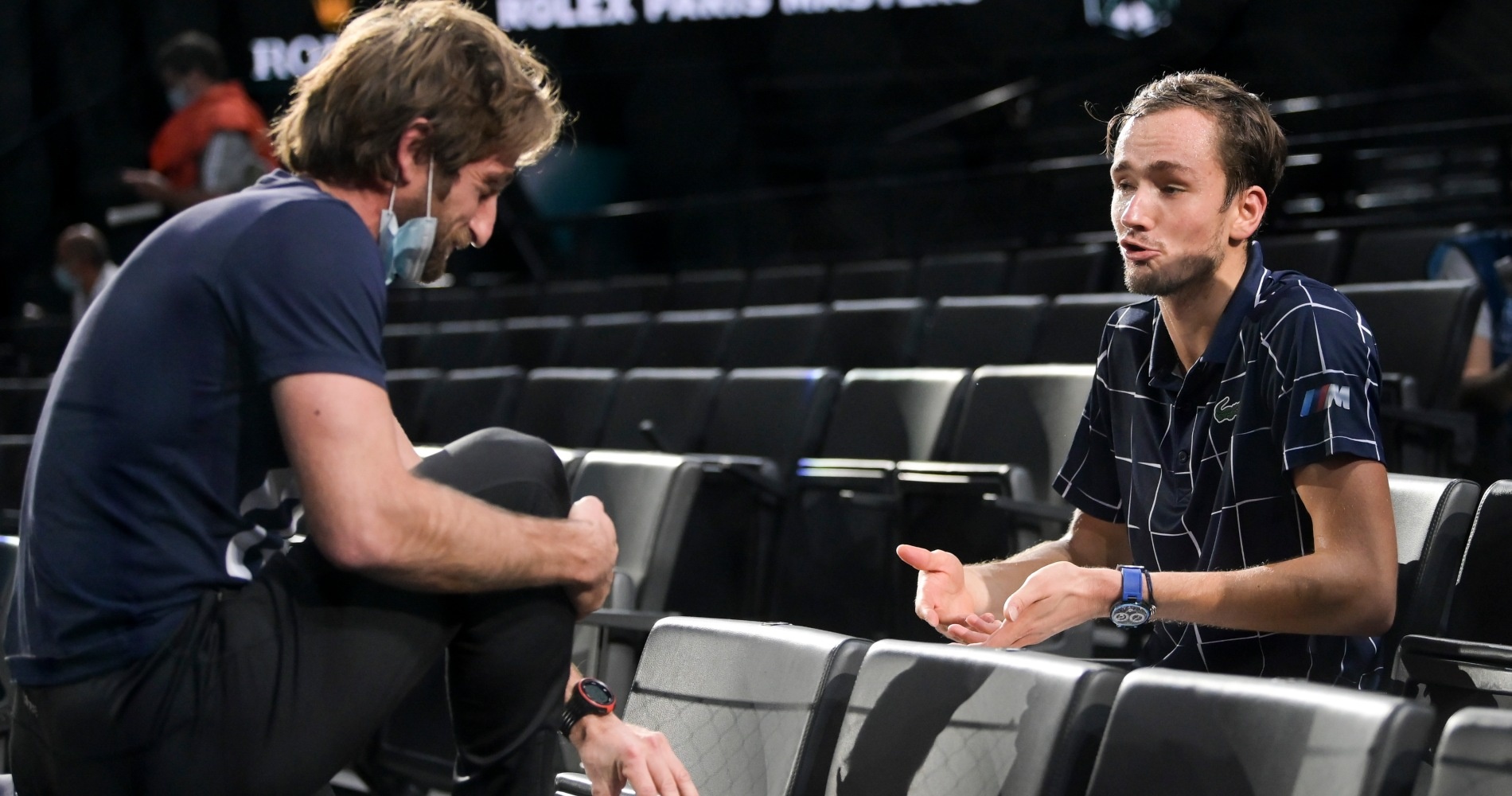
Gilles “The Negociator” Cervara
Cervara recalls that what ended up separating them may have been helpful initially. Their partnership had, one understands, a good cop/bad cop element that initially helped the Elite Tennis Centre run smoothly, and then helped Cervara understand his primary qualities and eventually the impossibility of expressing them at ETC.
“I wanted to progress as a coach and I was motivated as much by the sporting part as by the, let’s say, diplomatic and managerial part. I was good at easing and managing tensions that could arise with parents and players. I was even known as ‘The Negotiator’.” Only with Lisnard, the negociations freeze and go to en and.
Medvedev was torn between these two poles and saw the alternative gradually taking shape.
“In April 2017, he was made to return to the tournament too early and he injured himself in Budapest coming back from mononucleosis,” recalls Cervara. “He then plays Roland-Garros with ten days of training. He gave up with cramps against Bonzi. I remember an important moment for the future, during the debriefing. Jean-René and I did not agree on what to say to Daniil. Jean-René wanted to push him by saying that he had not done his maximum… But Daniil was convinced that he had given everything he had. Instead of spoiling him, I said to him with empathy: “Daniil, I believe you, you did your best, but your best was not high enough, we will work for it. We will work to raise it.’ I think that this event was not insignificant.”
Five years later, Medvedev is one of the best players in the world, but the 2022 season has not lived up to either man’s expectations: two titles but no Masters 1000, one Grand Slam final lost and a end-of-year world ranking of No 7. The decision to continue together was as quick and obvious as usual.
“As in all professions, we have a contract with contract with clauses that try to provide for things, and this contract is that we work together for one year, renewable,” says Medvedev. “It’s always been easy to renew it.”
“Every year after the US Open, I ask him if he wants to continue,” reveals Cervara. “I never think it’s
obvious. Sometimes you can feel the need or the desire to change to have another experience even when it works.
Medvedev : “It’s not up to Gilles, but to me to do better”
“I could understand it coming from Daniil because I myself can have this tendency, this freedom and this desire for challenge.”
“It remains obvious from my side that we have to continue,” says Medvedev. “The season was just ‘not so good’, it was not rotten. I feel that that together I can still improve as a player and he as a coach. In Turin, I served twice for the match and I lost three times in the group stage 7-6 in the third. But it’s still three high-level matches. It’s not up to Gilles, but to me to do better. We’re working well, it will pay off.”
Medvedev promises to do better in 2023 than in 2022. Thanks to his coach, he knows now why he “screwed up”.
